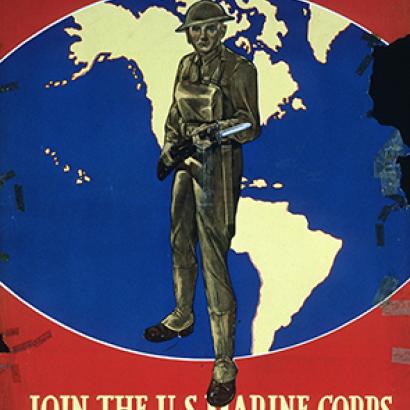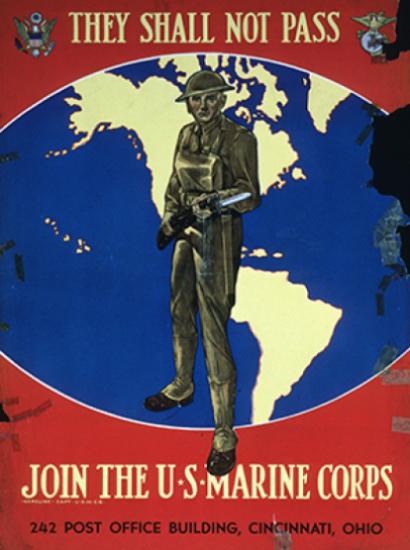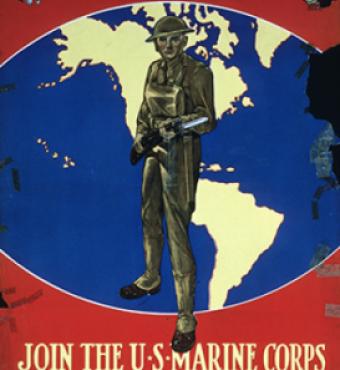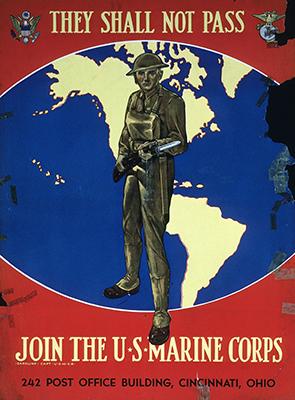- History
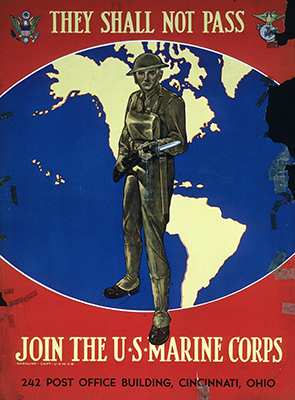
The Monroe Doctrine, which purports to warn other states from interfering in the affairs of the Western Hemisphere, has supposedly remained a basic principle of American foreign policy since the first half of the nineteenth century. From the point when it was issued, its actual relevance has depended on the willingness to enforce it, or whether there was any real threat. President Monroe issued it during a period when all of the major Spanish colonies in the Western Hemisphere were in the process of gaining their independence from Spain. That independence reflected the fact that the Napoleonic Empire had occupied the Iberian Peninsula from 1808 until 1813, thus providing no guidance from the home country, which a French puppet now ruled. Napoleon’s armies were finally driven out by the Duke of Wellington’s Peninsula Army in 1813—with some major help from Spanish guerrillas and minimal help from Spanish armies. The corrupt Bourbon monarchy returned to power. But for the colonies, the period of independence when Spain was under Napoleon’s rule proved too enticing to abandon it and return to Madrid’s incompetent rule.
The American fear was that the European powers would take the opportunity to carve their own slice of territory from the collapse, thus bringing Europe’s troublesome competition to the Western Hemisphere. However impressive the Monroe Doctrine might have sounded, the United States simply did not have the economic or military power to make it stand up to any effort by a European power to grab off chunks of the Western hemisphere. For the most part the Europeans contemptuously dismissed the Monroe Doctrine. But the British did not, and they possessed real military power that they were willing to employ against European interlopers. They had no intention of allowing the Spanish or any other European power to move into the newly independent states. But their stance had nothing to do with an idealistic desire to keep the Americas free from the messiness of a European involvement. Rather, the disappearance of control from Madrid in 1808 had opened the Central and South American markets to British exports to the extent that they made up for much of the pain that Napoleon’s Berlin decrees (in effect, embargoing British goods from France and French occupied Europe, which was most of the continent) inflicted on the British economy. And the British were not about to lose that valuable trade to any European powers that seized a former Spanish colony.
By the mid–point of the nineteenth century the United States possessed a booming economy, but little military power. Still, it simply did not appear worthwhile for the Europeans to tangle with the Americans when there were easier pickings with the steady collapse of the Ottoman Empire, and possibilities in Africa, particularly in Asia. That situation changed with the outbreak of the ferocious American Civil War, which threatened to tear the United States apart. It certainly gave the Americans little opportunity to interfere with European machinations. In this case, the French bet heavily that the Confederates would win the Civil War. After participating in a joint effort with the British and Spanish in the winter of 1861 to force the Mexicans to pay their debts, the French took advantage of the turbulent situation to attempt to overthrow the Mexican government. Napoleon II, emperor of France, then offered the crown of Emperor of Mexico to Maximilian of Austria, who accepted in 1864. But the Confederacy soon afterward expired, and the American government deployed its military power to the Rio Grande, the deploying forces led by the ferocious Phil Sheridan. The French, recognizing the strategic reality, then withdrew, leaving Maximilian to be shot by the authorities of the Mexican Republic.
Succeeding decades would see the United States continue to involve itself in various disreputable activities in Hispanic America, but the next truly serious case where the Monroe Doctrine was applicable, would be the Cuban missile crisis of 1962. The effort by Nikita Khrushchev to sneak nuclear short-range missiles into Cuba and deploy them created an explosive confrontation that came close to unleashing massive nuclear war. In the end, the powers backed off when the Soviets agreed to withdraw the missiles, against the insane attempt by Fidel Castro to stand up to the Americans and fight a nuclear war. There was certainly much talk of the Monroe Doctrine, but when was all said and done, the Americans were satisfied to have the missiles and nuclear weapons removed, although Castro’s regime remained tightly committed to their Soviet allies. In the end, whatever the Monroe Doctrine, Cuba was not worth a nuclear war.
So what relevance does the Monroe Doctrine have for the twenty-first century? Here we must recognize that diplomatic documents and doctrines are no more than pieces of paper. What matters, however, is the willingness and the character of the government that stands behind the stated document. Thus, the Monroe Doctrine’s only relevance lies in the willingness of the United States government to back it up with whatever means are relative.
In the 1920s France made an alliance with the Republic of Czechoslovakia to protect it should it become involved in a war with Germany. The disastrous Munich Agreement of September 1938, in which the premier of France Éduard Daladier pusillanimously surrendered the Czechs to the none too tender mercies of Adolf Hitler and his gang of criminals, underlined exactly how much an alliance means when one of the partners has no intention of abiding by its provisions. The following year, the only thing that prevented the British and French appeasers from running out on their agreement with the Poles was the fact that the British government would have fallen had Prime Minister Chamberlain not appeared in the House on September 3, 1939 with a declaration of war on Nazi Germany.
The American record in backing up its statements over the past half century has not been impressive. In 1972, Nixon and Kissinger persuaded the South Vietnamese to agree to a peace agreement with promises of support, should the North Vietnamese renege. In retrospect, the decision in 1964 to involve major U.S. forces in the war in South Vietnam was a disastrous mistake which our current semi-alliance with Vietnam underlines. Still the disgraceful performance of the U.S. Congress and Government in 1975 when the North Vietnamese thumbed their noses at the United States as their tanks rolled southwards still leaves a nasty taste in this author’s mouth. In the end it did not matter, because the United States as a great power did not suffer from the foolishness of its strategic policies and failure to honor its commitments. The hard words of the Athenians to the Melians in 415 BC echo throughout: “the strong do what they have the power to do and the weak accept what they have to accept.”
The attempt to cajole opponents on the international scene into behaving in a fashion more congruent with American interests simply does not work without a willingness to back up paper niceties with force. President Obama’s line in the sand in Syria had absolutely no effect, because the Syrians, undoubtedly encouraged by the Russians, fully understood there would be no response. And so the line in the sand had no effect except to act as an embarrassment to a weak administration that understood little about military force or the dismal politics of the Middle East.
And so what conclusion remains? If there are matters in the Western Hemisphere that demand an American response, then what will be of importance is only that the United States is willing to back up its interests with force. If it is not, then all the pronouncements about the Monroe Doctrine will be nothing more than blowing in the wind.







